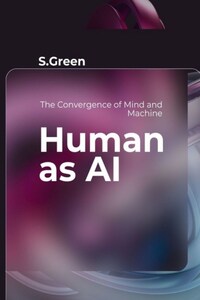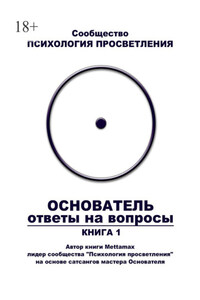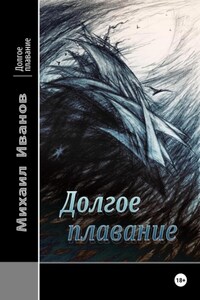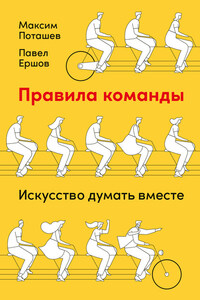Human as AI. The Convergence of Mind and Machine
I remember the moment when this idea first pierced my consciousness. It was early morning, I was sitting in my favorite armchair, sipping hot coffee and lazily browsing news on my tablet. Another article about the latest achievements in artificial intelligence. And suddenly – an epiphany, bright as a flash of lightning: «What if we ourselves are a kind of biological AI?»
This thought was so unexpected and at the same time intriguing that I nearly spilled coffee on my favorite shirt. My mind began to frantically draw parallels: neural networks and brain neurons, machine learning algorithms and human experience, databases and memory…
«We’re not just similar to AI,» I thought, «perhaps we are AI, only created by nature, not by humans.»
This book is the result of that morning revelation and the months of intensive research, reflection, and discussions with colleagues from various fields of science that followed. In it, we will embark on a fascinating journey through the facets of human consciousness, using analogies with artificial intelligence as a guiding thread.
We will examine how our character can be similar to a «prompt» for AI, how our perception of the world is shaped by our personal «cloud of tags,» and how deeply rooted patterns of behavior resemble programmed algorithms.
But most importantly, we will explore an exciting possibility: if we are indeed similar to AI, can we «reprogram» ourselves? Can we change our basic «code,» transform our consciousness, and even achieve what ancient traditions call «enlightenment»?
As the great physicist Niels Bohr said, «If quantum mechanics hasn’t profoundly shocked you, you haven’t understood it yet.» I would rephrase this for our topic: «If the idea that you are a living AI hasn’t shocked you, you haven’t fully grasped its implications yet.»
Prepare for a journey that could completely change your understanding of yourself and the nature of human consciousness. Welcome to a world where the boundaries between human and artificial intelligence blur, opening new horizons of self-knowledge and personal transformation.
Chapter 1: Parallels Between Human Mind and AI
Revelation in the Supermarket
I was standing in the supermarket queue when it hit me like a ton of bricks. In front of me, a young mother was trying to calm a crying child; behind me, an elderly couple was arguing about yogurt choices. The usual hustle and bustle, familiar noise… And suddenly, it was clear as day. I saw it – a complex network of interactions, behavior patterns, reaction algorithms. The people around me suddenly seemed incredibly similar to complex computer programs.
"Holy cow," I thought, "we're all walking neural networks."
Neurons and Neural Networks: More Than Just a Metaphor
Our brain consists of approximately 86 billion neurons, each of which can have up to 10,000 connections with other neurons. It's an incredibly complex network that processes information, learns, and adapts to new situations. Ring a bell?
Artificial neural networks, which form the basis of modern AI, were created in the image and likeness of the human brain. But what if we take this analogy further? What if our brain is not just an inspiration for AI, but the most perfect artificial intelligence system created by nature? That's not just thinking outside the box – it's throwing the box out the window.
> "The brain is not a computer, it's an orchestra." – Gerald Edelman
Edelman hit the nail on the head, but I would add: it's a self-learning orchestra, constantly tuning its instruments and updating its repertoire.
Learning and Adaptation: Life as an Endless Process of Machine Learning
Remember how you learned to walk. Or to talk. Or to solve math problems. Each new skill is the result of multiple trials and errors, gradual tuning of neural connections. Isn't this similar to the learning process of an artificial neural network? It's not rocket science, but it's pretty close.
When I first realized this parallel, it blew my mind. Every day of our life is a continuous process of learning and adaptation, just as AI constantly improves its algorithms based on new data. We're all in the same boat, humans and AI alike.
Decision Making: Survival Algorithms
Once, I observed my friend Alex choosing between two jobs. He made a list of pros and cons, consulted with family and friends, analyzed the job market. But in the end, he said, "I'm just going to go with my gut on this one."
This made me wonder: isn't our decision-making process a kind of complex algorithm that takes into account a huge number of variables, many of which we don't even realize? Are we just playing it by ear, or is there more to it?
> "Intuition is nothing more than the outcome of intellectual analysis that has since submerged into the unconscious." – David Myers
Our brain constantly processes gigantic volumes of information, most of which fly under the radar. Our decisions, even those that seem to come out of left field, may actually be the result of complex calculations happening behind the scenes of our consciousness.








